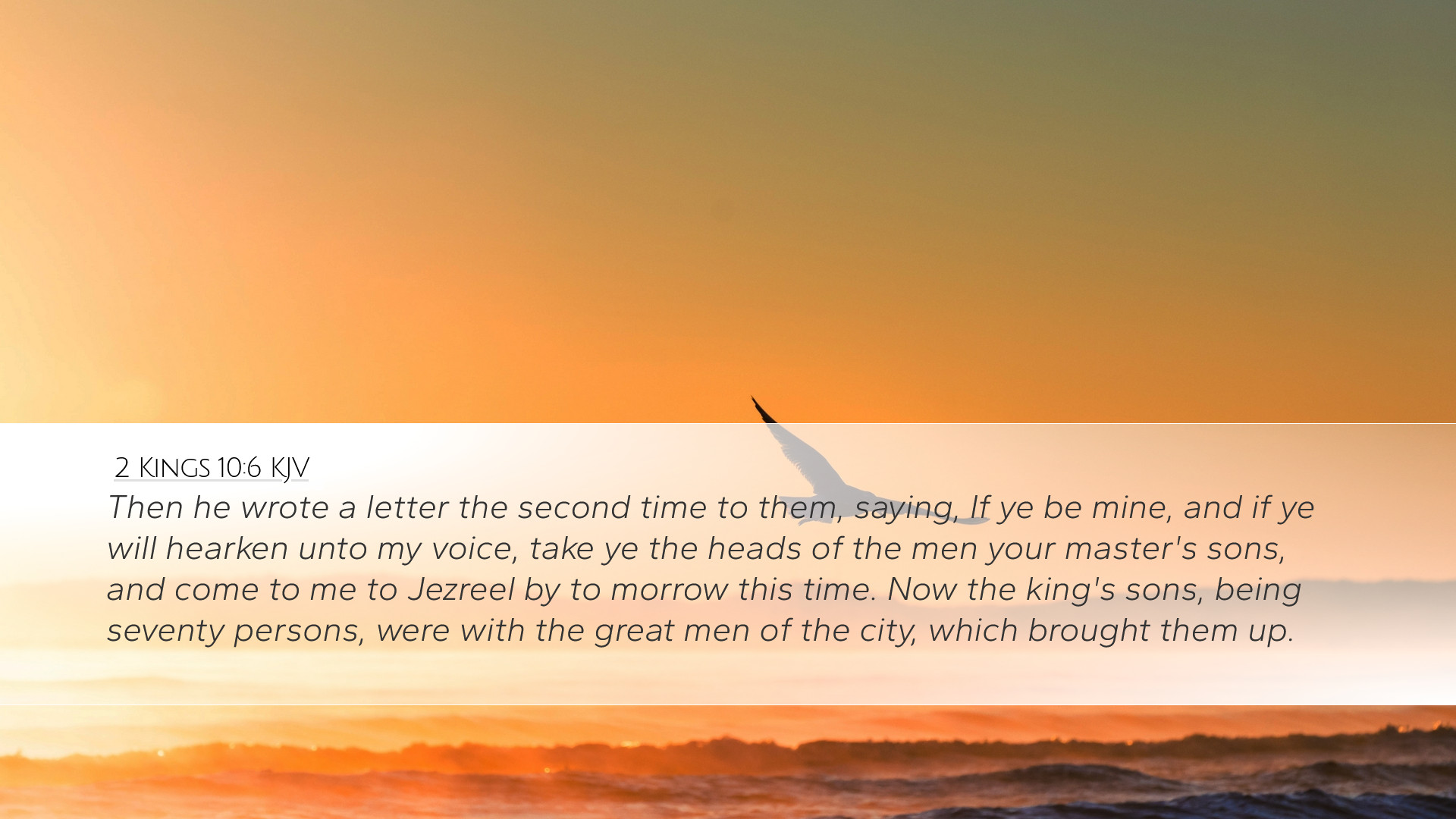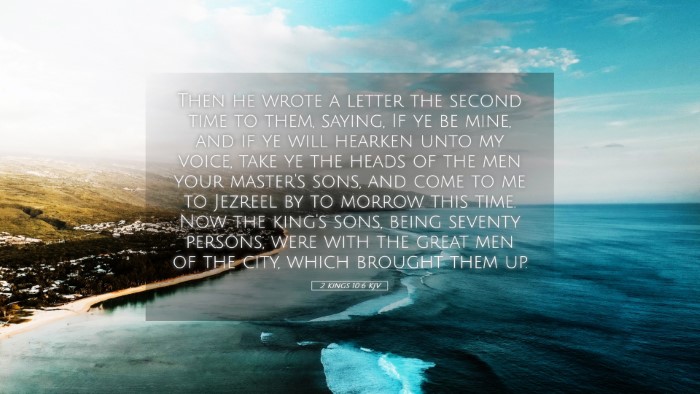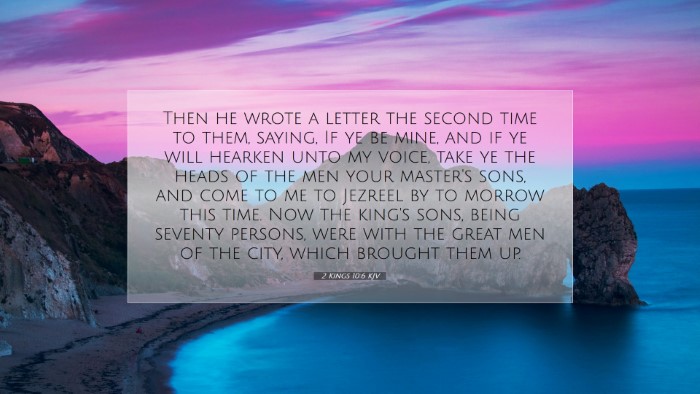Commentary on 2 Kings 10:6
Verse: "Then he wrote a second letter to them, saying, 'If you are on my side, and if you will listen to my voice, take the heads of the men, your master's sons, and come to me at Jezreel by this time tomorrow.' Now the king's sons, seventy persons, were with the great men of the city, who were rearing them."
Introduction
This verse is pivotal in the narrative of the fall of the house of Ahab. It demonstrates both the authority and the ruthlessness of Jehu as he seeks to carry out the prophetic judgment against Ahab's lineage. As we explore this passage, we draw insights from the commentaries of Matthew Henry, Albert Barnes, and Adam Clarke to uncover theological implications and moral lessons.
The Context of Jehu’s Reign
Jehu was anointed king over Israel to fulfill God’s judgment against Ahab and his descendants, as prophesied in 1 Kings 21:21-22. His ascension to the throne marks a significant transition in Israel’s monarchy. This verse exemplifies the depths of idolatry that had taken root in Israel and highlights Jehu's commitment to eradicate it.
Insights from Commentaries
Matthew Henry
Henry emphasizes the boldness of Jehu's command. The seemingly harsh directive to kill the seventy sons of Ahab seems excessive; however, it serves the purpose of cleansing Israel from the influence of Ahab's idolatrous practices. Henry notes, "It was just and necessary that the children should suffer for the sins of their father, as they had shared in the father's evil." He also points out the deceitful nature of the kingship and how political maneuverings often lead to severe consequences that affect innocent parties.
Albert Barnes
Barnes adds historical context by detailing the political climate in Israel at this time. He notes that the threats from Jehu were not merely tactical; they were aimed at instilling fear and consolidating power. He writes, "Jehu's letter serves as both a summons and a test of loyalty. Those who supported Ahab's house are given the choice to submit to Jehu or face dire consequences." Barnes highlights the importance of the phrase "if you are on my side", which creates a stark division between loyalists and adversaries.
Adam Clarke
Clarke focuses on the moral implications of Jehu's actions. He remarks that the execution of Ahab's sons was not just about political power but part of a broader divine strategy to reclaim Israel's purity. Clarke states, "This tragic act indicates the consequences of returning to idolatry; divine judgment comes, and in Jehu's case, it is certainly ruthless but divinely ordained." He further encourages reflection on the nature of God's judgments and the need for accountability in leadership.
Theological Reflections
This verse raises essential questions about the nature of divine judgment and human authority. Jehu’s extreme measures illustrate that God is serious about His covenant and the fidelity required of His people. Pastors and theologians should consider the implications of God's sovereignty in history and how leaders are often held responsible not just for their actions but for the legacies they leave behind.
Conclusion
In summary, 2 Kings 10:6 serves as a powerful reminder of God's judgment against the unfaithful. Through the insights of esteemed commentators, we recognize the profound gravity of Jehu’s actions as both a fulfillment of prophecy and a cautionary tale against the backdrop of idolatry and disobedience. This passage encourages a heartfelt examination of our allegiances and the impact those choices have on our communities and our relationship with God.
Reflection Questions
- What does Jehu's letter reveal about the nature of loyalty and authority in leadership?
- How can we discern the balance between righteous judgment and mercy in our own lives?
- What lessons can contemporary leaders learn from the decisions made by Jehu in the context of his divine mandate?


